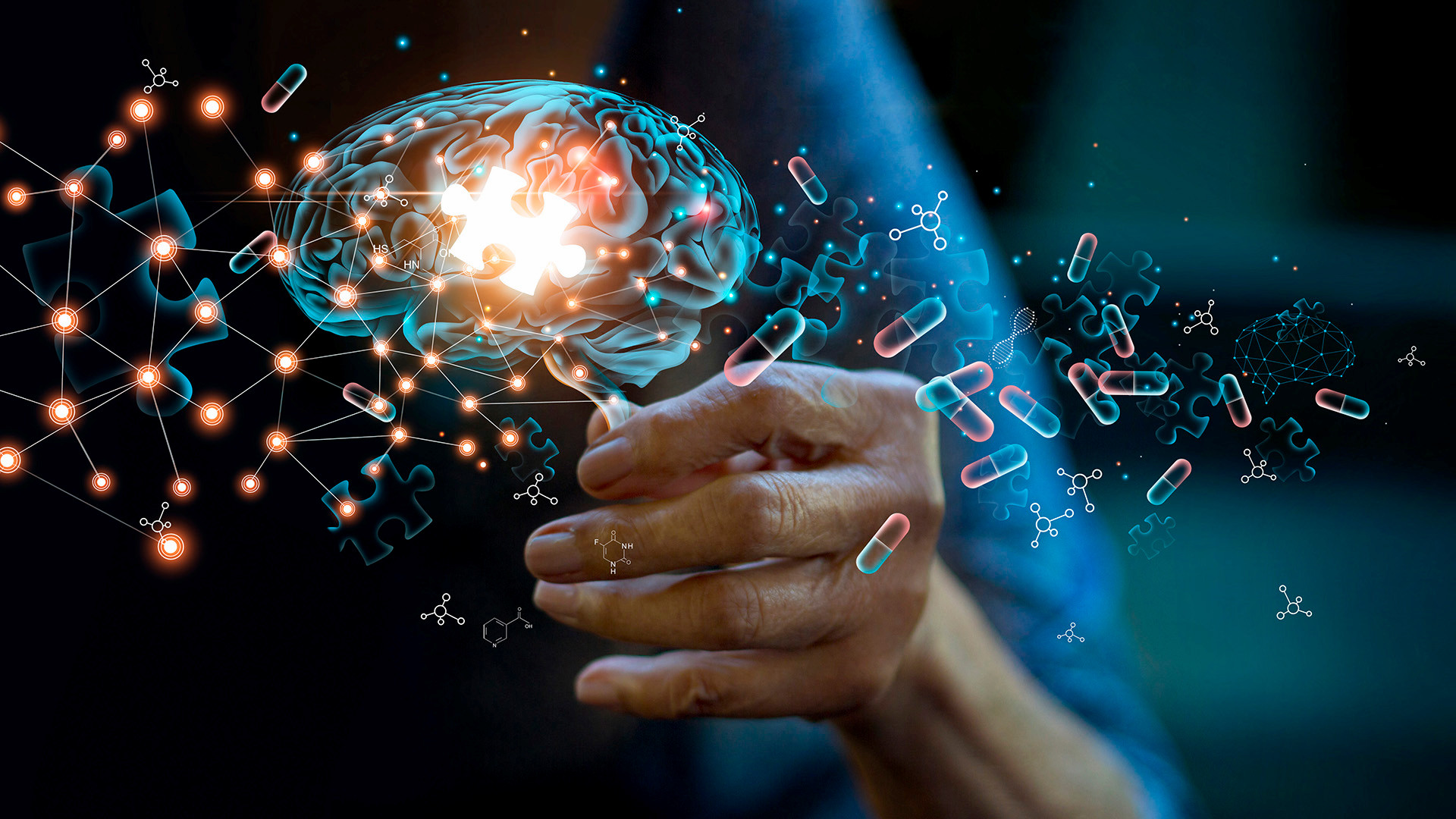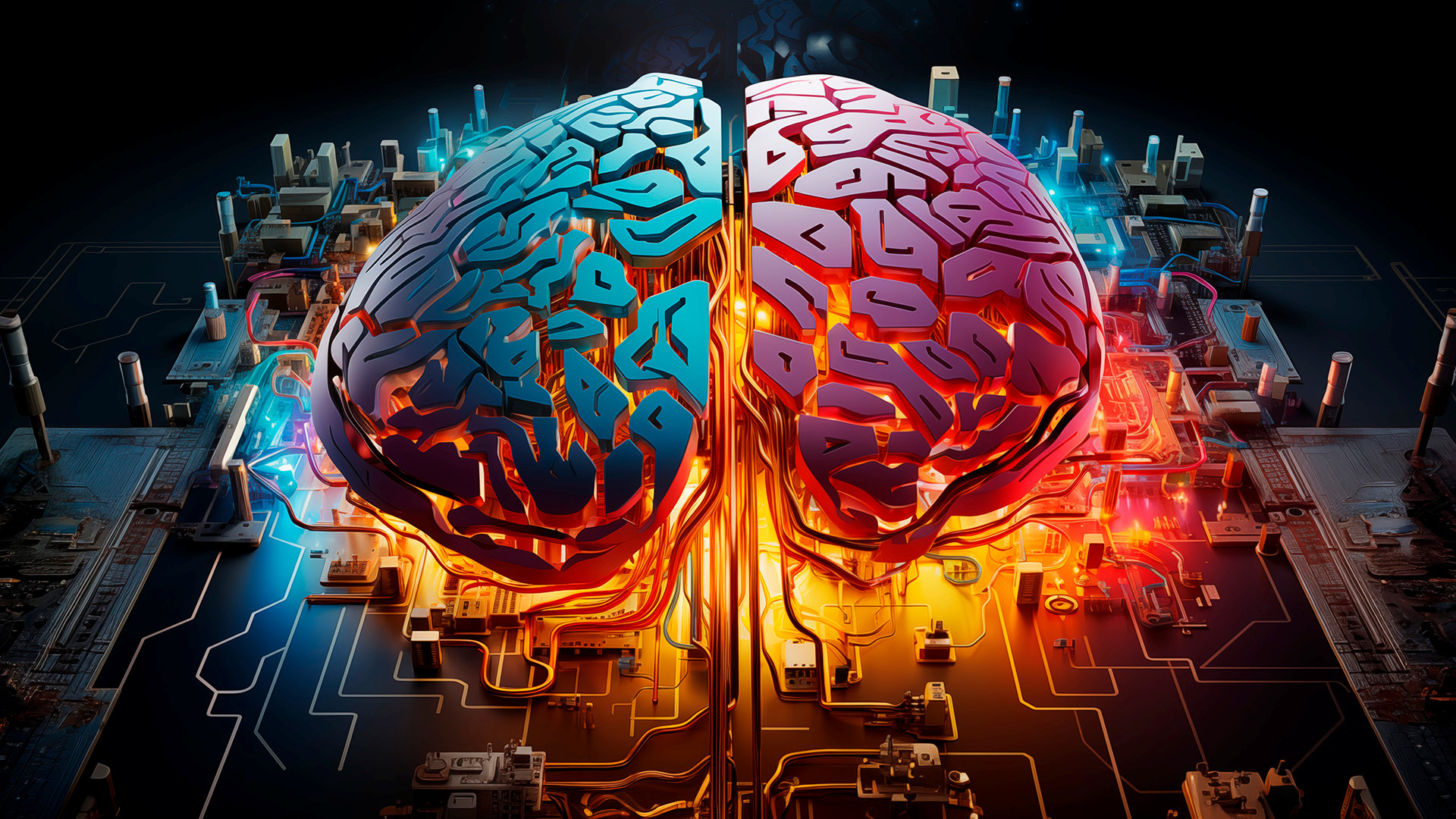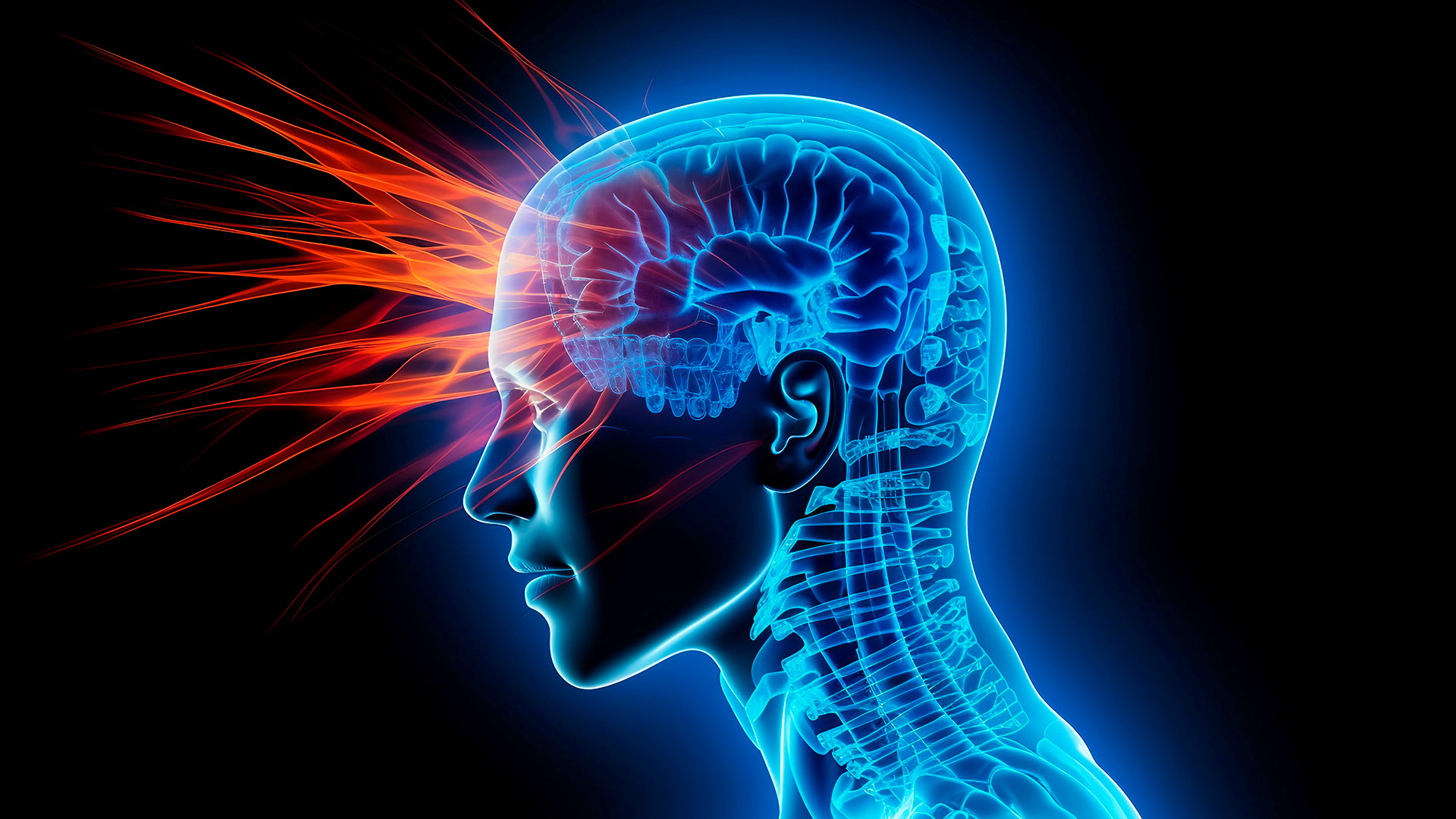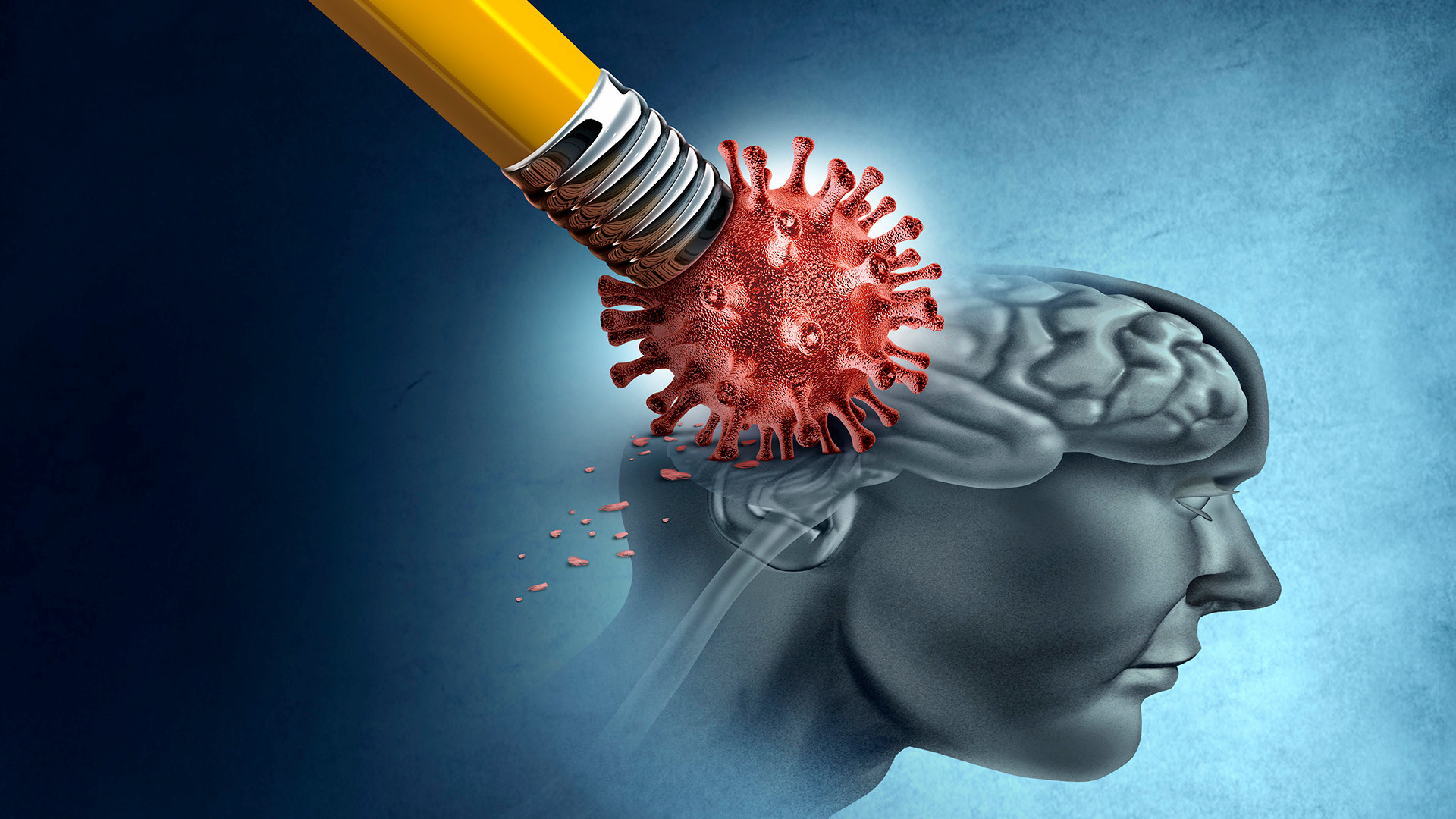Focus on Neurotherapeutics
 Drug development occurs in two categories: preclinical (in the lab to optimize an agent for eventual use in humans) and clinical (human clinical trials). Human clinical trials are typically conducted in three phases: Phase 1 (safety and dose finding in humans), Phase 2 (safety but also efficacy in humans, with the optimized dose), and Phase 3 (large-scale, multi-site studies to ensure safety and efficacy, wherein success yields an FDA approval).
Drug development occurs in two categories: preclinical (in the lab to optimize an agent for eventual use in humans) and clinical (human clinical trials). Human clinical trials are typically conducted in three phases: Phase 1 (safety and dose finding in humans), Phase 2 (safety but also efficacy in humans, with the optimized dose), and Phase 3 (large-scale, multi-site studies to ensure safety and efficacy, wherein success yields an FDA approval).
Our lab focuses on developing agents that are already FDA approved for one disease, for use in another disease. This markedly speeds up the time to reach human trials, garner FDA approval, and impact lives globally. See some of our success stories across COVID-19, long COVID, HIV, and depression!
Preclinical and Translational Pipeline
 Our laboratory has a unique ”direct to human trials” component, involving FDA approval of baricitinib for COVID-19, and multiple direct to phase 2 and phase 3 studies for CNS diseases with baricitinib. We also have a robust preclinical pipeline to fuel informed jumps to human trials across other inflammatory CNS diseases. Each of these preclinical pipelines are leveraged against an existing body of data with our novel agents, already approved in humans for other indications, to streamline informed human studies to ameliorate CNS inflammatory diseases.
Our laboratory has a unique ”direct to human trials” component, involving FDA approval of baricitinib for COVID-19, and multiple direct to phase 2 and phase 3 studies for CNS diseases with baricitinib. We also have a robust preclinical pipeline to fuel informed jumps to human trials across other inflammatory CNS diseases. Each of these preclinical pipelines are leveraged against an existing body of data with our novel agents, already approved in humans for other indications, to streamline informed human studies to ameliorate CNS inflammatory diseases.
In the Clinic: Baricitinib for CNS Diseases in Humans
 Our team has discovered how inflammation drives many diseases, and has leveraged our existing track record of success targeting inflammation for HIV and acute COVID-19 towards additional ongoing human studies. Our work is designed to improve speed, safety, and efficacy of novel FDA approved agents across CNS diseases to patients in need.
Our team has discovered how inflammation drives many diseases, and has leveraged our existing track record of success targeting inflammation for HIV and acute COVID-19 towards additional ongoing human studies. Our work is designed to improve speed, safety, and efficacy of novel FDA approved agents across CNS diseases to patients in need.
Phase II Study to Evaluate the Efficacy and Safety of Baricitinib for Reduction of HIV in the Central Nervous System
 There is still no cure for the human immunodeficiency virus (HIV). While combination antiretroviral therapy (cART) is effective in decreasing deaths from HIV, infected individuals face a lifetime of treatment and many potential complications, including end-organ diseases such as HIV-associated neurocognitive disorders. There is a large and growing body of evidence that the central nervous system (CNS) is an HIV reservoir site and a barrier to HIV eradication.
There is still no cure for the human immunodeficiency virus (HIV). While combination antiretroviral therapy (cART) is effective in decreasing deaths from HIV, infected individuals face a lifetime of treatment and many potential complications, including end-organ diseases such as HIV-associated neurocognitive disorders. There is a large and growing body of evidence that the central nervous system (CNS) is an HIV reservoir site and a barrier to HIV eradication.
Our group has done extensive pre-clinical work with janus-kinase (JAK 1/2) inhibitors. This includes baricitinib, which is an orally available, FDA-approved drug for rheumatoid arthritis. Evidence suggests that this drug has activity against HIV in the central nervous system (CNS). In our recently completed pilot study, we showed that baricitinib crosses the blood brain barrier (BBB) and decreases HIV CNS persistence in the brain.
Using bloodwork, neurocognitive testing, MRIs, and lumbar punctures, we plan to evaluate the change in central nervous system HIV, after treatment with baricitinib versus placebo. We will also evaluate changes in neuroimaging, inflammation in blood and cerebrospinal fluid (CSF), and neuropsychological performance after treatment with baricitinib versus placebo.
This study is the first human trial aiming to eliminate the CNS reservoir and to reverse neuroinflammation that drives neurocognitive deficits in people living with HIV.
Phase II Study to Evaluate the Impact of Baricitinib on Inflammation in Central Nervous System (CNS) Mechanisms of Anhedonia and Psychomotor Slowing in Depressed People With HIV
 Risk of depression is substantially higher in people with HIV (PWH) than the general population, and depression in PWH confers worse outcomes regarding treatment adherence, morbidity and mortality. Increased inflammation is one biological pathway that is linked to greater risk for depression in PWH and limits options for effective antidepressant therapy. Chronically elevated inflammation is associated with impairments within reward and motor neural circuits that contribute to symptoms of anhedonia (an inability to experience pleasure) and psychomotor slowing, which are overrepresented in PWH. The purpose of this 10-week, double-blind, placebo-controlled study is to provide mechanistic information on whether inflammation impacts corticostriatal reward and motor circuitry to contribute to anhedonia and psychomotor slowing in PWH with depression using the anti-inflammatory drug baricitinib.
Risk of depression is substantially higher in people with HIV (PWH) than the general population, and depression in PWH confers worse outcomes regarding treatment adherence, morbidity and mortality. Increased inflammation is one biological pathway that is linked to greater risk for depression in PWH and limits options for effective antidepressant therapy. Chronically elevated inflammation is associated with impairments within reward and motor neural circuits that contribute to symptoms of anhedonia (an inability to experience pleasure) and psychomotor slowing, which are overrepresented in PWH. The purpose of this 10-week, double-blind, placebo-controlled study is to provide mechanistic information on whether inflammation impacts corticostriatal reward and motor circuitry to contribute to anhedonia and psychomotor slowing in PWH with depression using the anti-inflammatory drug baricitinib.
This study will utilize an FDA-approved medication, baricitinib, to establish whether the effects of inflammation on reward and motor circuits are a mechanism of anhedonia and motor slowing in PWH with depression, while advancing avenues for new therapies for CNS diseases, inflammation, and depression.
REVERSE-Long COVID-19 With Baricitinib Study (REVERSE-LC)
 REVERSE-LC is a phase 3 trial of baricitinib, invented and discovered for the indication of viral infections and related sequelae by Dr. Gavegnano during her PhD thesis, versus placebo in adults with neurocognitive impairment (a form of Alzheimer's Disease and Related Dementias or ADRD) or cardiopulmonary symptoms due to Long COVID.
REVERSE-LC is a phase 3 trial of baricitinib, invented and discovered for the indication of viral infections and related sequelae by Dr. Gavegnano during her PhD thesis, versus placebo in adults with neurocognitive impairment (a form of Alzheimer's Disease and Related Dementias or ADRD) or cardiopulmonary symptoms due to Long COVID.
This is a multi-site randomized, placebo-controlled, double-blind, parallel-design REVERSE-LC phase 3 study. Individuals meeting inclusion criteria will be randomized to one of two arms: the intervention arm of baricitinib 4 mg daily for 24 weeks versus the placebo arm for 24 weeks. In addition to safety, a variety of clinical and biological outcome measures will be assessed.